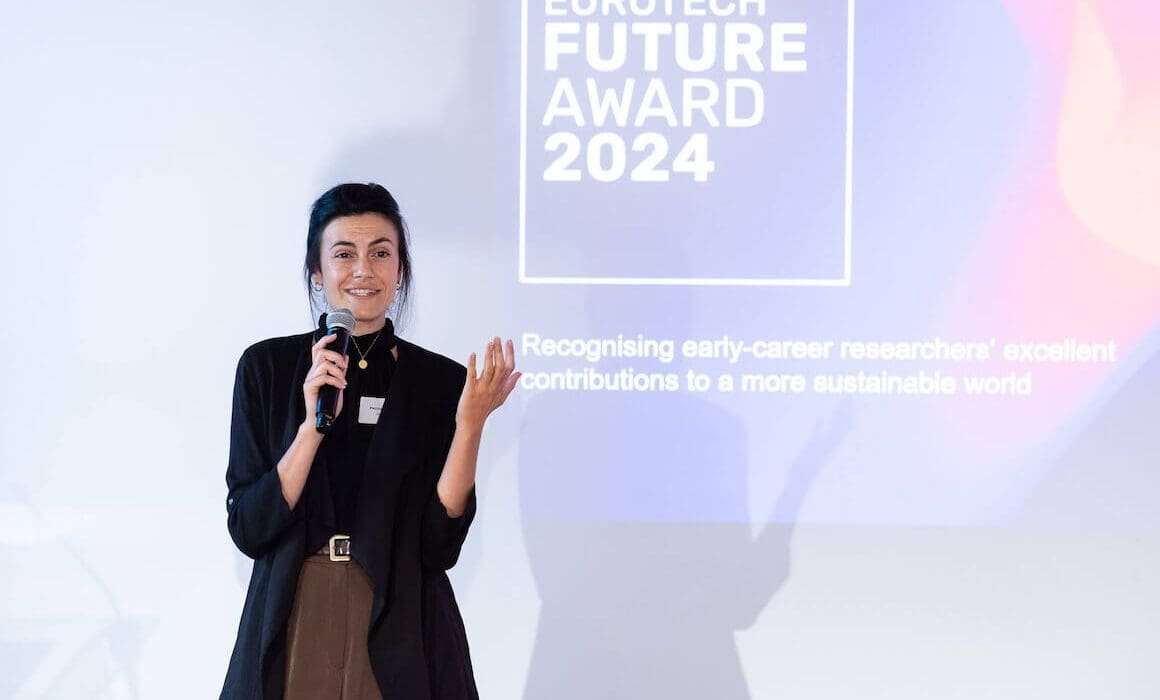Imagine if music turned out to be the panacea for treating Alzheimer’s disease and other neurological disorders. Dr. Patricia Mora-Raimundo, a postdoctoral researcher in the Technion’s Wolfson Faculty of Chemical Engineering, is investigating the possibility. Like the Pied Piper, she developed a model to improve nanomedicine delivery directly to the injured parts of the brain through music.
Nanometric drugs have the potential to produce much better treatment outcomes for neurological diseases than conventional treatments. However, one of the main challenges is the blood-brain barrier. This barrier protects the brain from infections but is also a complex obstacle to drug delivery. Dr. Mora-Raimundo recently won a prestigious award for developing MINND: Music Input in Nanotechnology-Based Treatments for Neurological Disorders, an innovative model that seeks to push the nanoparticles across the barrier with music.
“My research is inspired by my grandfather, who instilled in me curiosity, faith in effort and perseverance, and shaped my character,” said Dr. Mora-Raimundo. “About a decade ago, he was diagnosed with Alzheimer’s, and his condition influenced me to choose research related to this disease. In the advanced stages of the disease, most of my grandfather’s abilities declined, but music continued to speak to him.
“He continued to listen to music for a long time. I read extensive scientific literature on the subject and discovered that music creates new connections in the brain. Then I asked, could listening to music improve the delivery of therapeutic particles to the brain? The answer is still under research, and hopefully we will achieve promising results.”
Neurological disorders are the leading cause of disabilities and the second leading cause of death worldwide. Dr. Mora-Raimundo’s proposal won first place in the Future Award competition of the EuroTech Universities Alliance. The Alliance is a strategic partnership between leading science and technology universities. In 2019, the Technion joined the alliance as the sixth member of the network and the first outside Europe.
The Future Award was established to honor researchers expected to make dramatic changes in their fields for the benefit of humanity. Winners are chosen based on their existing and potential contributions to advancing the United Nations’ vision as reflected in the 17 Sustainable Development Goals (SDGs) set in 2015 and adopted by all member states. Dr. Mora-Raimundo was one of 28 competitors.
